Project Overview
- Environmental Monitoring and Governance in Asia UNU-IAS - Shimadzu Partnership Project
- Project Overview
- Current Phase
- Achievements
- Project History
- Solutions
UNU-IAS – Shimadzu Partnership Project
Environmental Monitoring and Governance in the Asian Coastal Hydrosphere
Environmental water contains a variety of elements, including those related to industrial and agricultural activity and urban waste. These pollutants do not have borders. In particular, Persistent Organic Pollutants (POPs) can remain in water for a very long time and enter the food chain, posing a real risk to human and ecological health.
In efforts to manage these pollutants in Asia, Shimadzu Corporation and the United Nations University Institute for the Advanced Study of Sustainability (UNU-IAS) jointly established a capacity-building initiative that would provide 10 Asian countries with the analytical scientific knowledge and technology to monitor pollutants in the environment as well as develop a global monitoring network in Asia.
This joint project began in 1996 in order to achieve sound chemical management in Asian coastal regions under the leadership of the UNU-IAS. Since its inception, the project has focused on the monitoring of environmental pollutants and, in this current iteration, will focus on POPs. Throughout the project's history, Shimadzu has provided comprehensive support for this multilateral project, capitalizing on its technical skills and expertise with respect to environmental analysis.
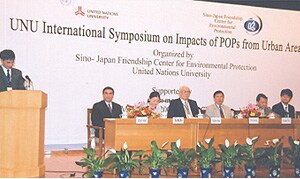
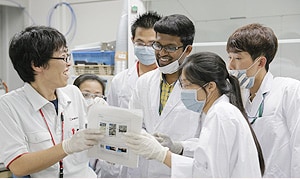
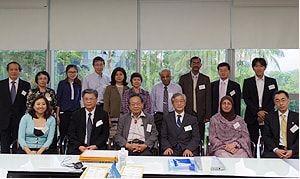
Project Scheme & Supports from Shimadzu
The UNU-IAS has initiatives geared towards strengthening research capabilities for the investigation of POPs that are regulated by the Stockholm Convention, particularly in the Asian region. The purpose is to establish proper management of environmental contaminants based on scientific monitoring procedures, focusing on the hydrosphere.
This dynamic joint project under the leadership of the UNU-IAS involves 10 institutes in Asian countries called National Project Coordinators (NPCs). The support provided enables the NPCs to enhance their environmental monitoring research activities in each country. The UNU-IAS takes initiative for the overall management of the project.
Shimadzu provides analytical instruments, applications and advisory services related to the operation and maintenance of the instruments. Shimadzu’s corporate philosophy, "Contributing to Society through Science and Technology", guides its efforts to pursue a harmony between global environment preservation and business development as a top management priority. In this sense, it is vital for Shimadzu to contribute to this project with its products and technologies.
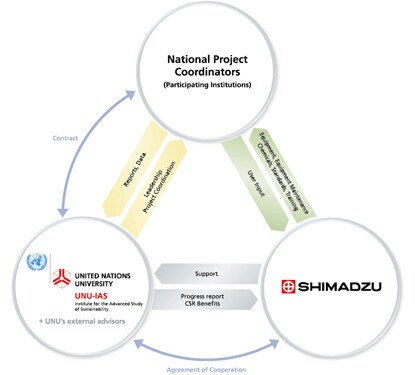
Structure and operation of the UNU-IAS-Shimadzu Project*
* Reference: Monitoring Pollution in Asia http://i.unu.edu/media/unu.edu/news/30930/POPs-Brochure_UNU-ISP2011.pdf
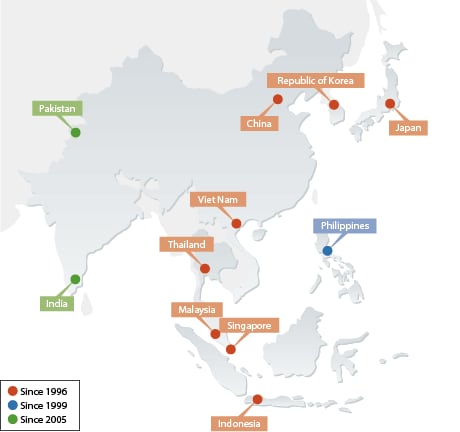
| Country | Institution |
| China | China-Japan Friendship Center for Environmental Protection |
| India | Bharathidasan University |
| Indonesia | Environmental Management Center - PSARPEDAL Universitas Gadjah Mada* *Since 2017 |
| Korea | Korea Institute of Ocean Science and Technology (KIOST) Chonnam National University* *Since 2012 |
| Malaysia | University of Malaya |
| Pakistan | Pakistan Council of Research in Water Resources (PCRWR) |
| Philippines | Natural Science Research Institute, University of the Philippines Diliman |
| Singapore | Department of Chemistry, National University of Singapore |
| Thailand | Environmental Research and Training Centre (ERTC) |
| Viet Nam | Viet Nam National University |


